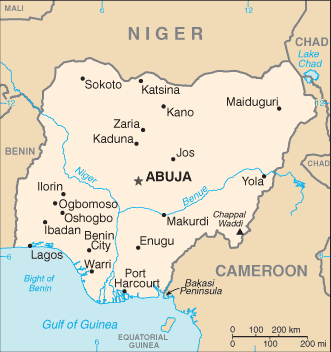In September, the World Health Organization (WHO) said that Nigeria, one of the three remaining polio endemic countries on the globe, has interrupted transmission of wild poliovirus and is no longer polio endemic.

Although the latest wild poliovirus case in Nigeria occurred on July 24, 2014, the West African nation has seen one case of circulating vaccine-derived poliovirus (cVDPV) this past May, prompting the Centers for Disease Control and Prevention (CDC) a travel notice fro Nigeria.
Vaccine-derived poliovirus can circulate in areas with low coverage of oral polio vaccine (OPV).
CDC recommends that all travelers to Nigeria be fully vaccinated against polio. In addition, adults who have been fully vaccinated should receive a single lifetime booster dose of polio vaccine. (Inactivated polio vaccine [IPV] is used in the United States instead of OPV. IPV does not contain live virus, so it cannot cause vaccine-derived polio.)
Polio is a disease caused by a virus that affects the nervous system, and is mainly spread by person-to-person contact. Polio can also be spread by drinking water or other drinks or eating raw or undercooked food that has been contaminated by the feces of an infected person.
Most people with polio do not feel sick. Some people have only minor symptoms, such as fever, tiredness, nausea, headache, nasal congestion, sore throat, cough, stiffness in the neck and back, and pain in the arms and legs. Most people recover completely. In rare cases, polio infection causes permanent loss of muscle function in the arms or legs (usually the legs); if there is loss of function of the muscles used for breathing or an infection of the brain, death can occur.

